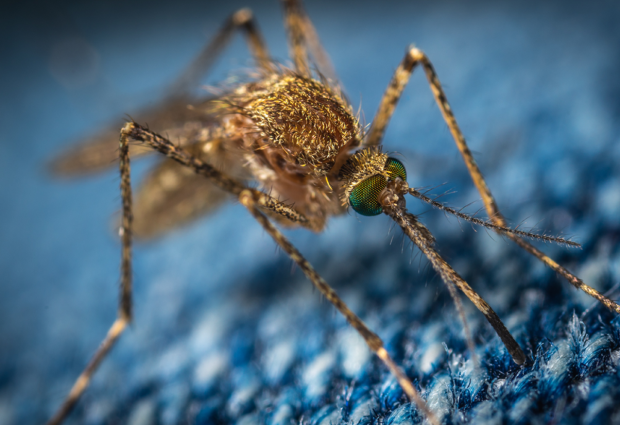
20 August 2024: World Mosquito Day
This day commemorates the major discovery by Dr Ronald Ross in 1897 that female mosquitoes transmit malaria between humans.
Last updated on 07 October 2024
In brief
The aim of the day is to raise public awareness of mosquito-borne diseases and the efforts being made to eradicate them. Arbo-France is one of the thematic networks of the ANRS MIE, which aims to improve preparedness and response to human and animal arbovirus epidemics in France and its overseas territories.
The mosquito, one of the world’s most dangerous serial killers
More specifically, it is the pathogenic micro-organisms (parasites, viruses or bacteria) present in an infected host (human or animal) and ingested during a blood meal by the mosquito that cause disease. The mosquito is the vector of these infections (mosquito-borne diseases). Ingested pathogens reproduce in the female mosquito, which injects them into a new host when it bites.
There are more than 3,000 species of mosquito, but only three are responsible for transmitting viral and parasitic diseases to humans: Aedes mosquitoes, Anopheles mosquitoes and Culex mosquitoes. The viruses transmitted to humans by mosquitoes are known as arboviruses. (1,2)
Viral diseases (or arboviroses) include chikungunya, dengue, Zika virus disease, yellow fever, Japanese encephalitis, West Nile fever and Rift Valley fever. Parasitic diseases include malaria and lymphatic filariasis.
Anopheles mosquitoes transmit malaria, filariasis and encephalitis. Culex mosquitoes carry encephalitis, lymphatic filariasis and West Nile fever. Aedes mosquitoes, which include the tiger mosquito, transmit yellow fever, dengue fever, chikungunya and Zika.
It is believed that mosquitoes are responsible for up to 1 million human deaths per year. (3)
Global warming favours the proliferation of arboviroses
Against a backdrop of climate change and the globalisation of trade, vector-borne diseases, including arboviroses, are tending to appear in previously unaffected geographical areas, or to reappear in areas where they had previously disappeared.
In France, since 1er January 2024, more than 1,679 cases of dengue have been imported into mainland France, compared with 131 cases over the same period in 2023. Since 1er January 2024, the tiger mosquito is found in 78 departments of mainland France. It is also present in Réunion and Mayotte. In Guadeloupe, Martinique, and French Guiana, Aedes aegypti mosquito is the vector responsible for the main epidemics of dengue fever, yellow fever, chikungunya and Zika. Recently, another widespread type of mosquito, the Culex pipiens, has transmitted another type of virus, the West Nile fever virus, which has been regularly detected around the Mediterranean.
The role of Arbo-France in the response to arbovirus epidemics
Arbo-France, under the aegis of the ANRS MIE, is a French network for the study of arboviroses, the aim of which is to facilitate preparedness and response to epidemics of human and animal arboviruses in mainland France and the overseas territories.
The objectives of this multidisciplinary and multi-institutional group are :
- create a monitoring and alert system for the ANRS MIE,
- improve the visibility of arbovirus research in France and internationally,
- helping to set up research projects,
- provide scientific expertise.
Research projects funded by the ANRS MIE
Research projects funded by the ANRS MIE include:
- Call for Emerging Projects (2022) – Low and Middle Income Countries (LMIC)
- Surveillance and control of arboviruses in Burkina Faso using a global approach – Centre MURAZ Research Institute Bobo-Dioulasso Burkina Faso
- (Re)emerging arboviruses in island environments in Oceania: new risk management perspectives in the post-COVID era – Laboratoire de recherche sur les maladies infectieuses à transmission vectorielle Institut Louis Malardé Papeete French Polynesia
- Determination of the circulation of viruses with epidemic potential in waste water in Guinea, a West African country – Institut Pasteur de Guinée, Conakry Guinée
- Call for PEPR MIE 2023 projects: 3 projects on arboviruses (see Appendix 1)
- The CAZIKANO project on the prevention and control of the infectious risk of contemporary African strains of the Zika virus
- The LSDengue project on the determinants of severe dengue fever in the French overseas territories
- The TICKRISK project, proposing an anthropological study and co-development of preparedness and risk communication for Crimean-Congo haemorrhagic fever on Europe’s borders
- 8 Arbo-France PhD grants (two in 2022, three in 2023 and three in 2024)
